 |
 |
|
EUSA Newsletter 04-2024, ISSN 1855-4571
|
The European University Sports Association (EUSA) has published the annual edition of its magazine – the European University Sports Association Year Magazine 2023-24, recapping the European Universities Championships 2023 and reflecting on other events and projects. The publication gives a comprehensive overview of the EUSA flagship event, as well as other activities throughout the year, as the organization continued the work actively with various events and initiatives. In this edition of the magazine, you will be able to find the welcome address by the EUSA President, current information on the structure of EUSA, including its member associations, associated members, Executive Committee, the Commissions, and the Secretariat. he major part of the content focuses on the record season of the European Universities Championships 2023, which for the very first time included also the European Universities Winter Championships. Apart from the general information and key statistics, all 16 championships are presented. The content of the magazine also includes reports on several events, conventions and meetings organized by EUSA over the past 12 months, witnessing the association maintaining open communication and dialogue with all its members throughout the whole year. Other key meetings and educational events of the year are reported as well, featuring also highlights of events held under the EUSA patronage. Focus is also then given to the EUSA Awards, recognising the achievements of individuals, universities, and associations in European sport, over the previous year, with an EUSA Awards Ceremony and Gala. A chapter of the magazine is dedicated to EUSA’s numerous projects which showcase the association’s work in the topics of, among others, Equal Opportunities, Fair Play, and Dual Careers, while the EUSA Volunteer Programme, University Sport Exhibition, EUSA Club of Donors and the International Day of University Sport (IDUS) are also covered. EUSA is a proud partner in projects and initiatives run or endorsed by the European institutions, agencies, and other partner organizations, receiving support by the European Union, Council of Europe and other institutional bodies, so an overview of these projects was introduced as well. Special attention has been given to the report of the European Week of Sport, which was held under the #BeActive slogan, promoting sport and physical activity throughout Europe as well as to the Healthy Lifestyle for All campaign. Other EU-funded projects where EUSA is a lead or partner have also been introduced, including the projects Inclusion in Sport (iSport), European Solidarity Corps (ESC), Erasmus+ Internship, Brand Value Alignment through Dual Career (BRAVA), Green Sports Hub Europe (GSHE), Youth Integrity Ambassador Program (YIAP), Future Volunteers – Key to Success in Generation Z (K2S-GENZ), (Uni)ted forces to support the education of (Uni)versity sport comm(Uni)ty (Uni4S), Micro Learning Entrepreneurship for Athletes (MLEA), Innovating Football Leadership: Inclusion through Policy and Practice (iFlipp), Enhancing sport organisations and management (ESOM), the Italian Civil Service as well as the overview for the newly granted projects. The magazine also offers an overview of the most visible events and achievements of the EUSA members and partners, including the International University Sports Federation (FISU), Continental university sports bodies of Africa, Americas, Asia and Oceania, as well as the other EUSA partners and allies, including the European Commission, Council of Europe, European Non-Governmental Sports Organisation (ENGSO) & ENGSO Youth, and the European Fair Play Movement (EFPM), European Athlete as Student (EAS) network and the European Handball Federation (EHF). The last chapter is devoted to the future programme, where the readers will be able to read and stay tuned with the latest information about the European Universities Games in Debrecen – Miskolc, the European Universities Championships in 2025 as well as the European Universities Games in Salerno to be held in 2026. EUSA Magazine is a free publication, supported by the International University Sport Federation (FISU) and co-funded by the Erasmus+ Programme of the European Union. Printed editions will be made available to all EUSA member federations and partners. The digital version of the EUSA magazine can be read and/or downloaded online. For possibilities of obtaining additional printed copies, please contact the EUSA Office. The digital version of the EUSA magazine can be read and/or downloaded online. For possibilities of obtaining additional printed copies, please contact the EUSA Office. More information...
EUG 2028 Technical Visit in Split
01 March 2024
|
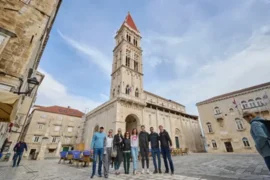
|
|
EUSA Technical Commission visited Split, Croatia between February 27-28, 2024, since the Dalmatian city is one of the three Candidate Cities for hosting the 2028 EUSA European Universities Games - together with Granada, Spain and Manisa, Turkiye.
|
EUG 2028 Evaluation Visit in Split
06 March 2024
|
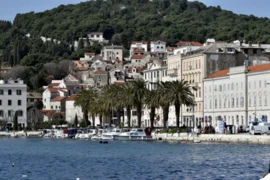
|
|
From March 3-5, 2024 the EUSA Evaluation Commission for European Universities Games 2028 composed of Mr Adam Roczek, EUSA President, Mr Matjaz Pecovnik, Secretary General and Mr Francis Cirianni, EUSA Treasurer visited Split (CRO), as one of the three Candidate Cities for hosting the European Universities Games in 2028.
|
EUSA meets with Technical Delegates online for EUG 2024
07 March 2024
|
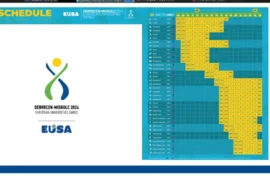
|
|
EUSA conducted a fruitful online Technical Delegates Coordination Meeting on Tuesday, March 5, as preparations continue for this year’s 2024 European Universities Games in Debrecen-Miskolc, Hungary.
|
European Open University Powerlifting Cup 2024
07 March 2024
|
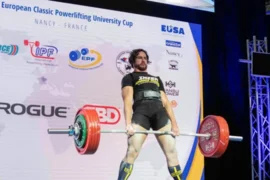
|
|
The European University Cup in classic powerlifting took place on 1-3 of March 2024 in Nancy, France. This year 52 Universities participated in this Cup, bringing to the competitions 60 male and 37 female lifters in their teams.
|
EUG 2028 Technical Visit in Manisa
09 March 2024
|
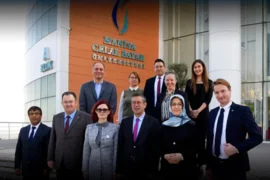
|
|
EUSA Technical Commission visited Manisa, Türkiye, between March 6-8, 2024, for the second of the three Inspection visits at the Candidate Cities of EUSA European Universities Games 2028.
|
EUG 2028 Technical Visit in Granada
14 March 2024
|
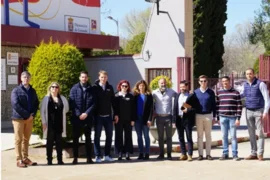
|
|
The last of three EUSA Technical Commission visits was held between March 11-13, 2024, in Granada, Spain, as it is one of the 3 Candidate Cities to host the European Universities Games 2028.
|
Become part of EUSA Associated Members in 2024
15 March 2024
|
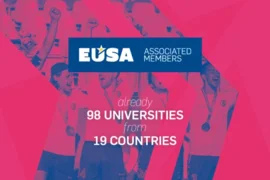
|
|
The opportunity for universities to become EUSA Associated Members continues in 2024! As the time passes, the interest from the universities to become EUSA Associated Members is getting bigger and bigger. Having said that, until today, the status of EUSA associated members has been granted to 98 universities from 19 countries.
|
Swiss University Sports has new presidency
18 March 2024
|
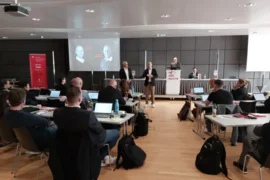
|
|
At the delegates' meeting of Swiss University Sports in Ittigen b. Bern, important changes in the precidency were made. President Mr Mike Kurt stepped down of the presidential position after six years in office and was acknowledged with honours, as decided by the organisation's assembly of delegates.
|
New SUSA leadership for the term 2024 2028
20 March 2024
|
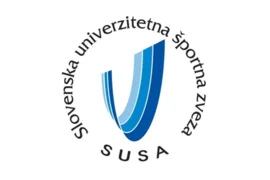
|
|
On Monday, March 11, 2024, the electoral assembly of the Slovenian University Sports Association (SUSA) took place, where the new leadership for the next 4 years was elected.
|
EUC Rowing 2024 to be held in Ankara
20 March 2024
|

|
|
In 2024, the European Universities Rowing Championship will be held between August 29th and 1st of September, in Ankara, Türkiye. As rowing is not one of the sports disciplines of this year's European Universities Games in Debrecen-Miskolc, EUSA Executive Committee attributed the 2024 European Universities Rowing Championship to the city of Ankara.
|
EUG 2028 Evaluation Visit in Manisa
21 March 2024
|

|
|
Manisa – one of the three Candidate Cities for the organisation of the 2028 European Universities Games hosted the EUSA Evaluation Commission composed of Mr Adam Roczek, President, Mr Matjaz Pecovnik, Secretary General and Mr Francis Cirianni, Treasurer.
|
Aveiro to host EUSA Executive Committee meeting
22 March 2024
|
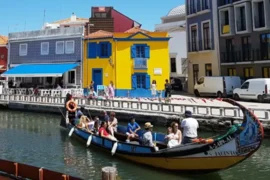
|
|
The Portuguese city of Aveiro will host the Executive Committee of the European University Sports Association (EUSA) between April 18 - 21, 2024.
|
EUG 2028 Evaluation Visit in Granada
23 March 2024
|

|
|
From March 20-22, 2024, Spanish City Granada, welcomed the European Universities Games 2028 Evaluation Commission. The EUSA Evaluation Commission consisted of Ms Ivana Ertlova, Vice-President, Mr Matjaz Pecovnik, Secretary General, and Mr Francis Cirianni, Treasurer.
|
Registration for EUC Rowing 2024 starts
25 March 2024
|
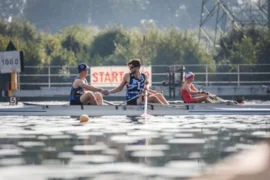
|
|
The registration for the European Universities Rowing Championship Ankara 2024 opened today! European University Sports Association (EUSA), Türkiye University Sports Federation (TUSF), Atilim University and the local organising committee are excited to be able to offer rowing as part of the EUSA sports programme also in 2024.
|
NUSAs get EUG2024 updates in EUSA online webinar
28 March 2024
|
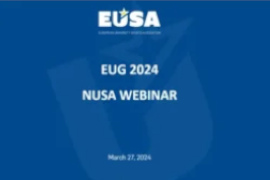
|
|
On March 27, 2024, the European University Sports Association hosted the online NUSA Coordination Webinar, with the main topic being the upcoming European Universities Games 2024 scheduled to take place in Debrecen - Miskolc, Hungary.
|
ESOM and DiscoverU online events coming up in April
28 March 2024
|
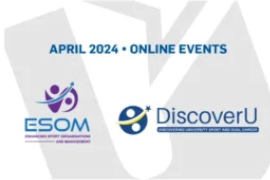
|
|
Apart from the preparations for the future sports programme offered by the European University Sports Association (EUSA) in the next months, interesting educational events are also on the schedule. We are happy to invite you to two insightful webinars that will steal the spotlight in April: the ESOM Webinar on Good Governance and EAS & EUSA Café: University Sports - From Active Lifestyles to Dual Career.
|
Save the date: EUG2024 Observer Programme
29 March 2024
|
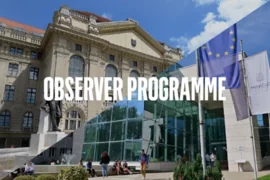
|
|
The European University Sports Association (EUSA) would like to announce that the EUG2024 Observer Programme will be held from 11 to 15 July 2024 in Debrecen and Miskolc, Hungary.
|
Successful EUG 2024 ambassadors
29 March 2024
|
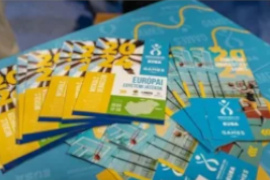
|
|
The month of March was the starting point of the EUG 2024 ambassadors campaign, under the moto More than Athletes! During the month, a few interviews were published, sharing the experience and stories of different student – athletes, that will be involved in the European Universities Games 2024 in Debrecen – Miskolc, in Hungary.
|
|
 |
| FISU Section |
First 2024 FISU Executive Committee Meeting in Lausanne
04 March 2024
|

|
|
On March 1 and 2, 2024, the International University Sports Federation (FISU) Executive Committee took place in Lausanne, Switzerland, with the participation of ten new EC members.
|
FISU announces new Secretary General
19 March 2024
|
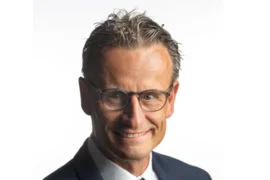
|
|
On 18th of March, the International University Sports Federation (FISU) announced changes regarding the position of Secretary General within the organization.
|
2024-2028 FISU America Executive Committee elected
26 March 2024
|

|
|
FISU America held its General Assembly in Brazil, where the elections for the 2024 – 2028 Executive Committee were held. Within the framework of the FISU America 2024 Assembly, the elections were held for the representatives who will represent the different positions within the leadership...
|
|
 |
| EUSA Insider |
Vanda Toth
|
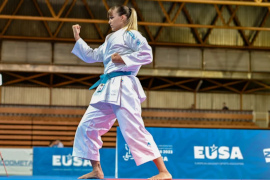 |
|
Vanda Toth
age: 21
athlete, Karate
University of Miskolc
Hungary
|
Bence Neuwirth
|
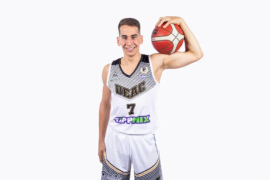 |
|
Bence Neuwirth
age: 21
athlete, Basketball
University of Debrecen
Hungary
|
|
 |
| Important Dates Coming Up |
|
 |
| What's up! - Student Column |
Zero discrimination and inclusivity through sport
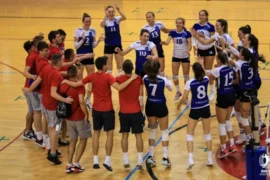 In this month’s What’s up student Column our EUSA Italian Civil Service volunteer Mr Giacomo Mori elaborates on the topic of Zero Discrimination and inclusivity through sport. In this month’s What’s up student Column our EUSA Italian Civil Service volunteer Mr Giacomo Mori elaborates on the topic of Zero Discrimination and inclusivity through sport.
March 1st each year is designated as Zero Discrimination Day. This annual celebration stands as a significant reminder from the United Nations to embrace diversity and reject discrimination in all its forms, calling upon individuals, communities, and organizations worldwide to promote equality and inclusion.
When talking about fighting discrimination through the use of sport, various aspects come into play. We all know how sport embodies a powerful educational instrument in modern society, capable of instilling values that are essential for both individual and societal advancement. From the athletes’ perspective, engaging in sports represents a means for succeeding in life that is profoundly democratic in a way. Sport levels the playing field by guaranteeing equal starting conditions, thus offering every participant the same chance of achieving victory. The very nature of athletic competition eradicates disparities stemming from cultural, social or economic-based factors. It does not reflect or perpetuate existing hierarchies but instead creates a neutral arena where competitors can rightfully and fairly distinguish themselves based on merit alone.
With regards to the social value of sport, the most important teaching it transmits is that of educating about social coexistence. Thanks to sports practice, through the assimilation of fair play rules to be respected in competition with opponents, the mechanisms of social self-control spread, thus teaching respect for others for the construction of more supportive and inclusive social communities.
If I look back at my life experience related to sport, the social aspect of sport is precisely the one that has impacted the most on my personal development. As a youth basketball player throughout my childhood and adolescence, sport mediated many of my first steps into community life and formed a key part of my educational journey. During the years of my competitive sporting activity, I have been lucky enough to play in various teams and to meet and form deep friendships with many teammates from different social backgrounds. What I learned most from that youthful life experience was being able to connect with people who were totally different from me, just by the very fact of playing on the same parquet, with the same ball and for the sake of the same final victory. This is a social mechanism typical of team sports, which is very close to camaraderie; in such a context, individual differences are canceled out in the strength of the group, when a social bunch of individuals with different tastes, personalities and cultures work together to achieve a common objective on which everyone's personal satisfaction depends.
In this sense, sports have the unparalleled power to unite people from different social backgrounds, fostering a sense of togetherness and shared achievement that is embodied in the very definition of “sporting community”. The essence of sportsmanship as it is known nowadays transcends racial, gender, and socioeconomic boundaries, embodying the ideal of equality that underpins the building of a more just and fair community of individuals. However, in today’s world, discrimination in all its forms (based on race, gender, sexual orientation, disability, nationality and religion) still remains a major scourge that requires constant efforts to eradicate it, and the sports environment itself is not immune to the prejudices and biases that plague broader society.
Nonetheless, if we look at the more recent history of the global sports movement, there are many practical examples of progress in the fight against discrimination that we can look up to. One of the most remarkable is the achievement of gender equality in pay at major tennis tournaments. The longstanding fight for gender pay equity in all Grand Slam tournaments, championed by several tennis legends, culminated in 2007, when the Wimbledon Championships awarded equal prize money to male and female competitors for the first time, being the last to do so. This milestone set a precedent for other sports to follow. The exponential growth in recent decades of the Paralympic movement is another major example of how sports can be a powerful platform for promoting social inclusion, providing disabled athletes with a global stage to showcase their talents and challenging social perceptions about disability.
Global sport institutions have also launched various initiatives and campaigns over the years to combat discrimination and promote inclusivity. One of the most famous examples of this type is FIFA's "Say No to Racism" campaign, which launched in 2006 and has since become a staple at major global football tournaments. The campaign has had a significant impact on the football community worldwide, raising awareness and sparking conversations about racism in sport. It has been recognized by various organizations and has inspired similar initiatives in leagues and sports federations around the world. Its success lies in FIFA's ability to support the campaign with numerous side activities, such as educational programs run with member associations and clubs targeting players, coaches, referees, and fans to educate them on the impact of racism and promoting respect and diversity. Furthermore, the campaign is backed by a strong regulatory framework that allows FIFA to take disciplinary actions against individuals, teams, or associations that engage in racist behavior.
The International Olympic Committee (IOC) has also launched various initiatives aligned with these principles. The IOC has set strategic gender equality & inclusion goals for the time period between 2021-2024. The Olympic Games Tokyo in 2020 were the first ever gender-balanced Olympics in history and the future plan is to continue this outstanding achievement. Keys objectives include a renewed focus on accelerating progress across the entire Olympic Movement and the implementation of the Olympic Agenda 2020+5.
The next Paris 2024 Olympic Games are also taking significant steps to address and combat discrimination, with a focus on promoting inclusivity and equality across various fronts. The very slogan of Paris 2024, "Games wide open," already embodies a clear commitment to organizing Games that are accessible and open to everyone, reflecting the overarching goal to promote inclusivity, accessibility, and the celebration of diversity and unity through sport. Furthermore, Paris 2024 will be the first-ever Games to achieve full gender parity among athletes, featuring an exact equal number of female and male athletes in the competition, totaling 10,500 participants, with 5,250 of each gender. A strong support for the LGBTI+ Community will be ensured as well. A major initiative in this field will be the establishment of the Pride House at Parc de la Villette, situated in close proximity to several competition venues, that will serve as a symbol of solidarity and support for the LGBTI+ community.
The Paris 2024 Paralympic Games will embrace an inclusive and accessible approach as well, through several key initiatives and features that highlight this commitment. For the first time in the history of the Paralympic Games the official Opening Ceremony will be held outside of a traditional stadium setting. The ceremony will take place at the iconic Place de la Concorde, symbolizing the Organizing Committee's broader ambition to integrate the Paralympic Games into the heart of society, and place the issue of disability inclusion at the center of societal concerns.
Despite all these examples of progress, discrimination persists in sports. Several studies that focus on the topic repeatedly report how LGBTQ+ individuals continue to witness or experience discrimination in sports. Furthermore, gender disparities also persist, with women significantly underrepresented in leadership roles within sports organizations. Additionally, racial discrimination remains a critical issue, and racial minorities continue to face significant disparities in coaching and executive positions in major sports leagues.
In conclusion, the Zero Discrimination Day serves as a crucial reminder of the ongoing battle against discrimination in all fields of society. While there have been significant strides towards inclusivity and equality, the data clearly shows that there is still much work to be done, and sport can act as a powerful tool for promoting anti-discriminatory social behavior. Sports organizations, teams, and individuals must continue to champion the principles of zero discrimination, ensuring that the world of sports truly reflects the diversity and potential of humanity. Through collective action and persistent advocacy, the dream of a fully inclusive and equitable sporting world can become a reality.
The author of this article, Giacomo Mori, has an academic background in political science and international relations. He is currently a volunteer at the European University Sports Association as part of the Italian Universal Civil Service Program.
Are you a student with an opinion? We are looking for new contributors for our student column every month. Feel free to contact stc@eusa.eu to offer a piece or propose a topic.
read more >>
Your Data and Privacy:
EUSA GDPR: General Data Protection Regulation
Published by:
European University Sports Association (EUSA)
Office: Tomšičeva ulica 4, SI-1000 Ljubljana
Realisation/Main editor: Andrej Pišl
tel: +386 1 256 0056, web: www.eusa.eu
social: Facebook | Twitter | Instagram | Threads | YouTube | LinkedIn | #eusaunisport #myeusa
|
 European University Sports Association European University Sports Association 
|
|





























